
Experiencing noise when turning your Toyota Aygo can be both annoying and concerning. As the driver, it’s crucial to identify the possible causes of these noises and address them effectively to ensure a smooth driving experience and to prevent potential damage to your car.
Various factors can contribute to your car making noise when turning. Tuning your ear to where the noise is coming from can make identifying potential noises much easier.
This article will familiarize you with common sounds that can happen when turning your Toyota Aygo (with sound clip examples) to help you effectively diagnose and resolve the issue.
Common Sounds a Toyota Aygo Makes When Turning
When you notice your Aygo making noise while turning, it’s essential to pay attention to those sounds, as they can indicate various issues. Identifying the type of noise and understanding its potential causes can help you take the necessary steps to address the problem.
Steering System Sounds
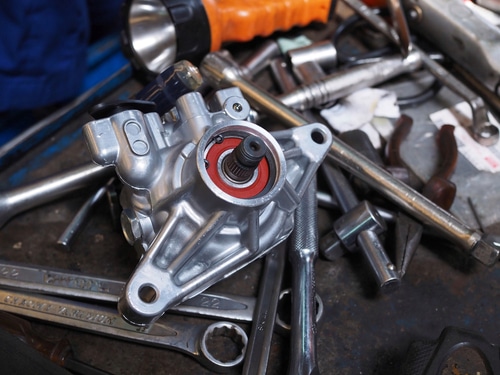
Perhaps, the most common reason that your Aygo makes noise when turning is an issue with the power steering pump. Here’s what it sounds like:
If you hear this noise when you cut the wheel, your Aygo’s power steering pump is either failing or low on fluid (which means it has a leak you’ll need to track down.
Creaking, squealing, groaning, knocking, or screeching sounds often point to issues within the steering system.
A worn or loose belt can cause these sounds, low power steering fluid, or damaged parts in the power steering mechanism.
If you hear these noises, inspect your Aygo’s serpentine belt and fluid levels first, and if the issue persists, consider a more in-depth diagnosis.
Serpentine Belt
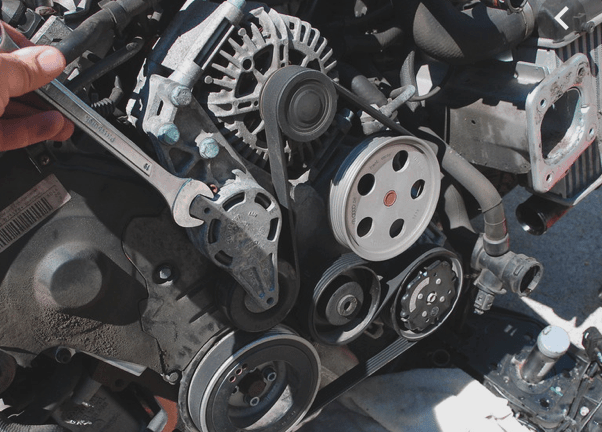
A failing serpentine belt can cause noise while turning. It’s a squeaking sound. Here’s an example:
The noise should be prominent when turning the wheel. You may hear it chirping under the hood if you listen closely.
Suspension System
Another common noise is a popping sound, generally indicating something is wrong with your Aygo’s suspension system.
Possible culprits include a bad coil spring, faulty struts or shocks, or worn ball joints. These issues require immediate attention to avoid further damage or potential accidents.
Wheel Bearing
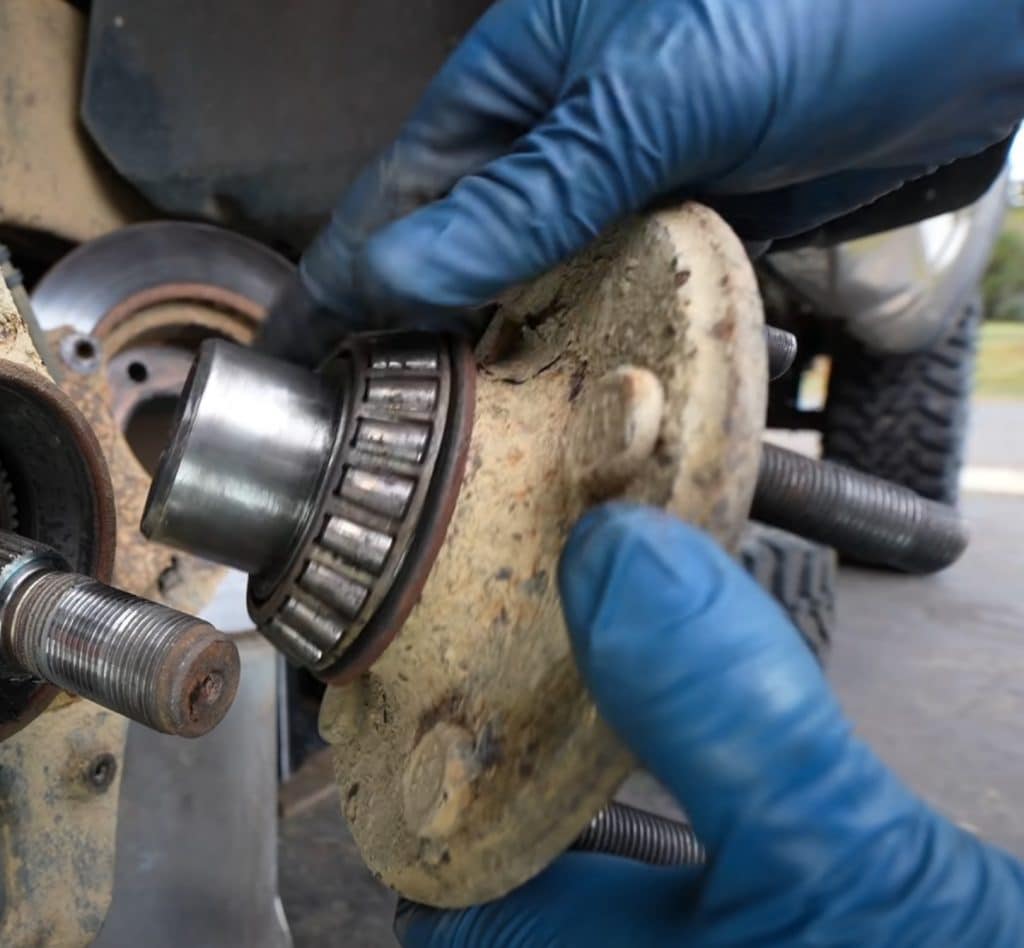
If your Toyota Aygo makes a growling noise when turning, it may have a bad wheel bearing. Wheel bearings are crucial for smooth and safe driving, as they help support the vehicle’s weight and facilitate tire rotation. A worn wheel bearing needs to be replaced and is not a repair that should be ignored.
Remember that each speed level can point towards a different mechanical problem. For example, if you experience noises at low speeds, the issue is likely related to the power steering or suspension system.
Tire Rubbing
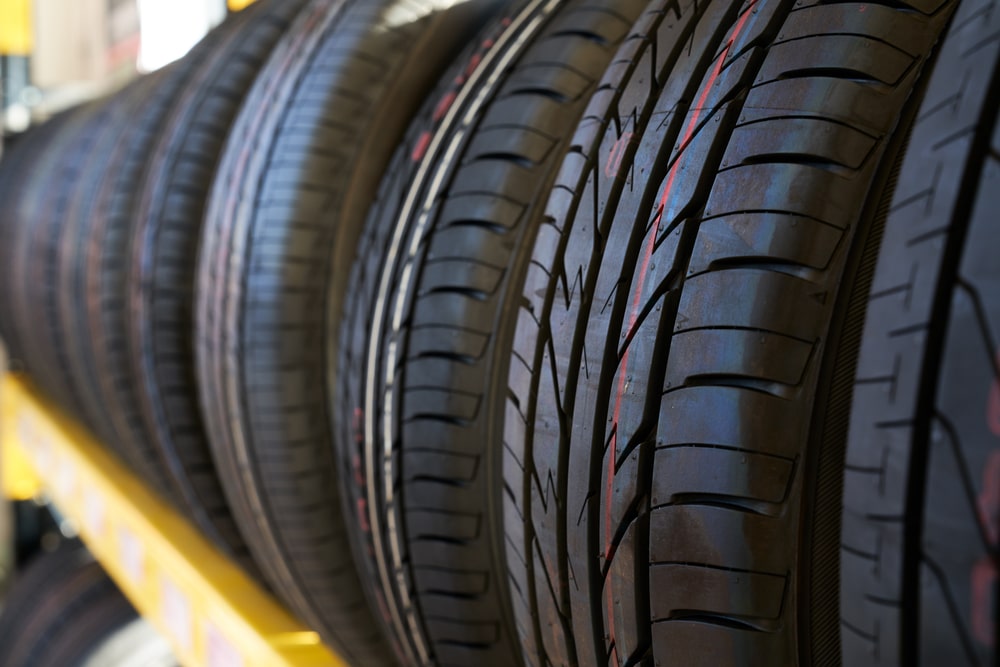
When you hear a tire rubbing noise while turning your Toyota Aygo, it can be due to a misaligned or improperly inflated tire. Make sure to check your tire pressure and alignment. Adjusting these factors may alleviate the problem.
Debris or Trash Lodged Under the Vehicle
Occasionally, debris or trash lodged under your car can cause noises during turns. This can include rocks, leaves, or even plastic materials caught in the wheel well or other parts of your Aygo’s undercarriage. Check underneath your car for any visible debris and remove it if found.
Inadequate Lubrication
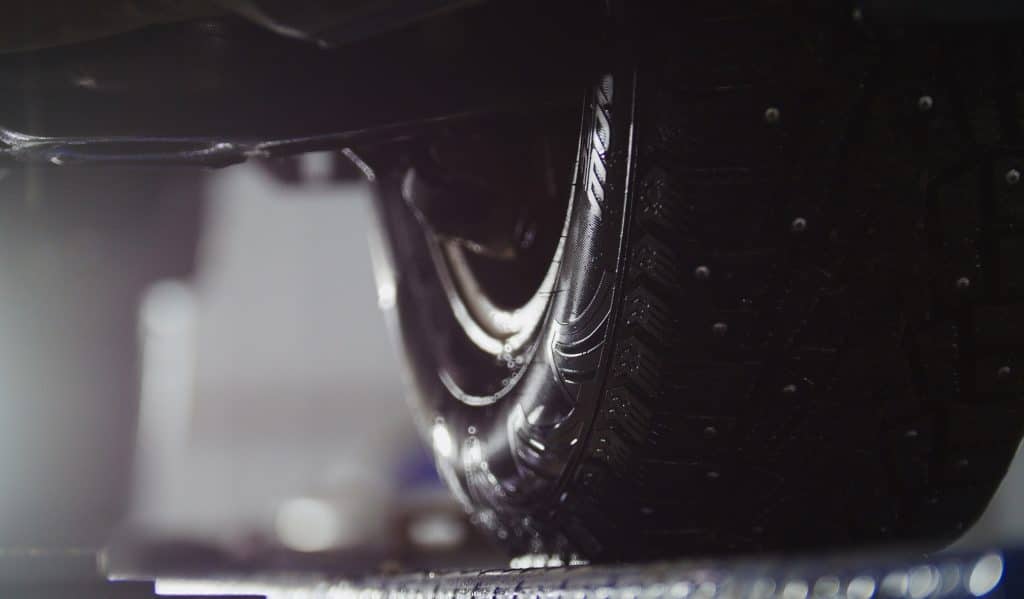
Finally, inadequate lubrication of various components, such as the steering or suspension system, can lead to increased noise when turning.
Ensure all your Toyota Aygo’s suspension components are adequately lubricated to minimize friction and reduce noise levels while turning. Regular maintenance and inspections will help keep these systems in check.
Identifying Noise When Turning
When trying to identify the noise your Aygo makes when turning, it’s essential to focus on the type of sound and when it occurs. This will significantly help narrow down the potential causes of the problem.
What does it sound like?
We’ve provided audio samples to help you narrow down what’s causing your car to make noise while turning.
Which side of your vehicle is it coming from?
First, consider whether the noise occurs only when turning in one direction (e.g., left or right) or both. This detail can help you pinpoint the affected part of your vehicle.
If you hear a humming noise when driving and turning, it might indicate worn-off wheel bearings.
Noise location
Another aspect to consider is the location of the noise. For instance, if you notice the sound coming from the top of your Aygo’s engine bay as you turn, there’s a good chance it’s coming from the power steering pump.
A damaged power steering pump can become noisy as it starts to fail. Alternatively, a damaged steering pump or low steering fluid can also produce noise when turning.
The Pitch of the Noise
While investigating the noise, try to observe if the volume or pitch of the sound changes when turning your Aygo.
Droning noises that don’t change in pitch or volume, but get louder as you accelerate, could mean this noise comes from your tires—especially if they’re old or of poor quality. Feathered tires, a term for uneven tire wear, can also be responsible for such noise.
Finally, don’t overlook the possibility of issues with the steering linkage, worn bushings, or problems with the shocks and springs. These components can also contribute to your vehicle making noise when turning.
By comparing the type of sound, the location, and the conditions under which it occurs, you can better understand the reason for the noise when turning your Toyota Aygo. From there, you can take appropriate action to resolve the issue and ensure a smooth, quiet driving experience.
Conclusion
Various factors can contribute to your Toyota Aygo making noise when turning. Most commonly, the issue may stem from worn-out suspension components, loose steering parts, or low power steering fluid levels.
To ensure that your car remains in optimal condition, it is crucial to address these noises promptly and take the necessary steps to fix any underlying problems.
Professional Assessment: Consult a professional mechanic who can thoroughly assess your Aygo’s condition and provide expert advice on the most appropriate repair or replacement options. This expertise will allow you to understand the severity of the issue and make informed decisions about the best course of action.
DIY Fixes: With a basic understanding of your vehicle and its components, you may be able to address minor issues independently.
Remember to consult your Aygo’s owner manual for specific guidance, and if you are unsure of the correct procedure, it is always best to consult a professional mechanic.

